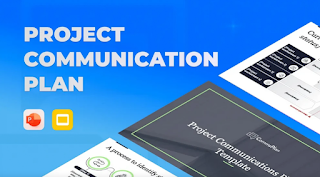Streamlining Stakeholder Engagement: The Importance of a Stakeholder Communication Plan Template & Essential Communication Templates
Effective stakeholder communication is vital for the success of any project. Engaging stakeholders, managing their expectations, and ensuring they are well-informed throughout the project lifecycle can significantly impact project outcomes. A Stakeholder Communication Plan Template and various communication templates are indispensable tools for project managers to achieve these goals. In this article, we’ll explore the importance of these tools and provide insights into how they can enhance project management practices.
The Importance of Stakeholder Communication
Stakeholders are individuals or groups with a vested interest in the project. They can include project sponsors, team members, clients, end-users, and external partners. Their engagement and satisfaction are crucial for the project’s success. Here’s why effective stakeholder communication matters:
Alignment with Project Goals:
- Ensuring that all stakeholders have a clear understanding of the project’s objectives, scope, and deliverables helps align their expectations with project goals. This alignment reduces misunderstandings and increases support for the project.
Improved Decision-Making:
- Timely and accurate information sharing allows stakeholders to make informed decisions. This proactive approach to communication helps in addressing issues promptly and keeping the project on track.
Increased Stakeholder Engagement:
- Regular and meaningful communication fosters a sense of involvement and ownership among stakeholders. Engaged stakeholders are more likely to support the project actively and contribute to its success.
Risk Mitigation:
- Open communication channels enable the early identification and mitigation of risks. Stakeholders can provide valuable insights and feedback that help in anticipating and managing potential challenges.
Stakeholder Communication Plan Template
A Stakeholder Communication Plan Template is a structured document that outlines how and when information will be communicated to stakeholders throughout the project. Here are the key components of an effective Stakeholder Communication Plan Template:
Introduction:
- Purpose: Define the purpose of the communication plan and its role in the project.
- Project Overview: Provide a high-level summary of the project, including objectives, scope, and key deliverables.
Stakeholder Identification and Analysis:
- Identification: List all stakeholders involved in the project.
- Analysis: Assess each stakeholder’s level of interest, influence, and impact on the project. Categorize stakeholders based on their engagement needs.
Communication Objectives:
- Clearly state the objectives of the communication plan, such as keeping stakeholders informed, managing expectations, and fostering engagement.
Stakeholder Information Needs:
- Identify the specific information needs of each stakeholder group. Determine the type, frequency, and format of communication required for each group.
Communication Methods and Tools:
- Describe the methods (e.g., meetings, reports, emails) and tools (e.g., project management software, collaboration platforms) that will be used to communicate with stakeholders.
Communication Schedule:
- Provide a timeline or calendar outlining when and how often communication will occur. Ensure regular updates and meetings are scheduled to keep stakeholders informed.
Roles and Responsibilities:
- Assign responsibility for each type of communication to specific team members. Ensure that everyone understands their roles in executing the communication plan.
Escalation Process:
- Define the process for escalating issues that require higher-level intervention. Ensure that stakeholders know how to escalate concerns if needed.
Review and Approval Process:
- Outline how the communication plan will be reviewed and approved. Ensure that the plan is regularly updated to reflect any changes in the project or stakeholder needs.
Templates and Examples:
- Include predefined templates for common communications, such as status reports, meeting agendas, and minutes. These templates ensure consistency and efficiency in communication.
Essential Communication Templates
In addition to a Stakeholder Communication Plan Template, various communication templates are essential for effective project management. Here are some key templates:
Status Report Template:
- Purpose: Provide regular updates on project progress, issues, and next steps.
- Components: Project summary, milestone status, completed tasks, upcoming tasks, issues, and risks.
- Use: Distributed weekly or bi-weekly to keep stakeholders informed about the project’s status.
Meeting Agenda Template:
- Purpose: Outline the topics to be discussed during a meeting.
- Components: Meeting date and time, list of attendees, agenda items, time allocations for each item, and objectives.
- Use: Sent before meetings to ensure participants are prepared and meetings are focused and efficient.
Meeting Minutes Template:
- Purpose: Document the discussions, decisions, and action items from a meeting.
- Components: Date and time, attendees, agenda items, discussion points, decisions made, action items, and responsible parties.
- Use: Distributed after meetings to ensure clarity and accountability.
Risk Management Plan Template:
- Purpose: Identify, assess, and manage potential risks throughout the project lifecycle.
- Components: Risk identification, risk assessment (probability and impact), mitigation strategies, and risk owner.
- Use: Regularly reviewed and updated to proactively manage risks.
Communication Log Template:
- Purpose: Track all communication activities and interactions with stakeholders.
- Components: Date, communication type, stakeholders involved, key points discussed, and follow-up actions.
- Use: Maintained throughout the project to ensure a comprehensive record of all communications.
Conclusion
Effective stakeholder communication is a fundamental aspect of successful project management. By using a Stakeholder Communication Template and essential communication templates, project managers can ensure that stakeholders are well-informed, engaged, and aligned with project objectives. These tools provide a structured approach to planning, executing, and managing communication, ultimately leading to better project outcomes and higher stakeholder satisfaction. Invest in these communication practices and empower your project team to achieve excellence in stakeholder management.



Comments
Post a Comment